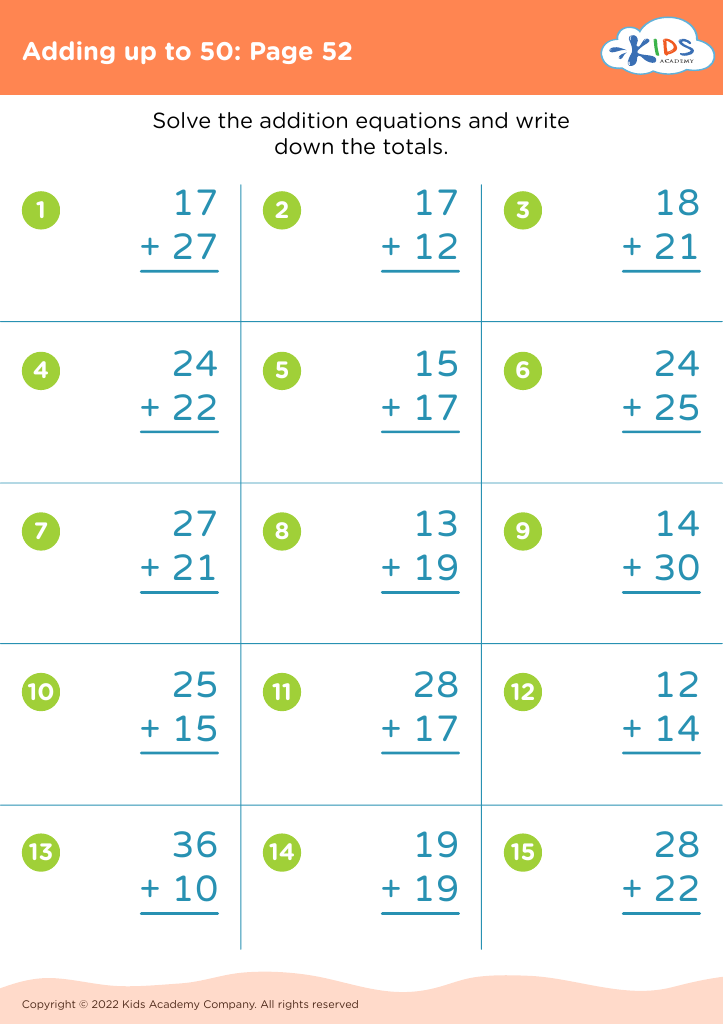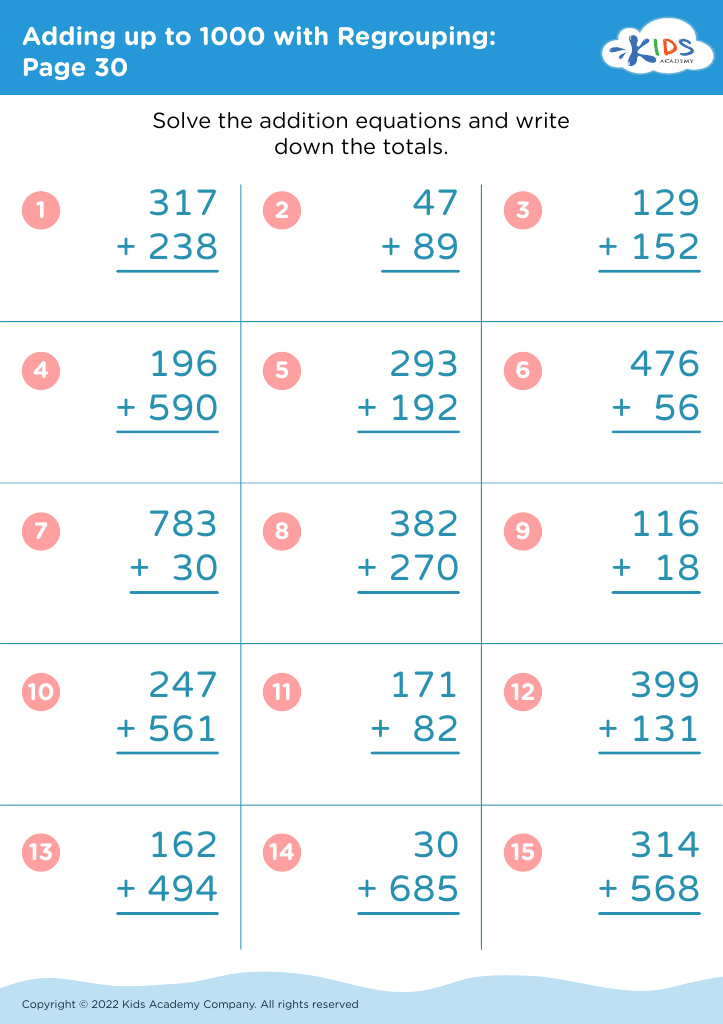Enhancing creativity Addition & Subtraction Worksheets
4 filtered results
-
From - To
Explore our "Enhancing Creativity Addition & Subtraction Worksheets," designed to inspire young learners while reinforcing essential math skills. These engaging worksheets combine fun visuals and creative prompts to make addition and subtraction exciting for children. Allow them to experiment with different ways to solve problems and express their understanding through artistic expression. Our resources cater to diverse learning styles, ensuring that every child can enjoy a personalized educational experience. With a blend of math practice and creative thinking, these worksheets foster critical skills that extend beyond the classroom. Join us in making learning an adventurous journey filled with creativity and excitement!
Enhancing creativity in teaching addition and subtraction is vital for parents and teachers alike because it fosters a deeper understanding of mathematical concepts and promotes critical thinking skills. Engaging students through creative methods—like storytelling, art, or hands-on activities—can transform rote memorization into meaningful learning experiences. When children approach math with creativity, they discover multiple strategies to solve problems, making them more adaptable and confident in their abilities.
Furthermore, nurturing creativity in math encourages a love for the subject. When students see math as fun and relevant rather than merely a set of rules, they become more motivated to learn. This positive attitude helps to develop resilience; kids learn that making mistakes is part of the learning process, which ultimately builds their problem-solving skills.
For parents, being involved in enhancing their child’s creativity in math can strengthen their relationship with their kids and help them support learning at home. Meanwhile, teachers can create a more vibrant learning environment, ensuring that every student’s unique learning style is addressed. In turn, this leads to improved academic performance and prepares children for future challenges across various disciplines, making their education holistic and well-rounded.
























